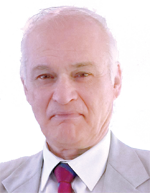

The choice of Christine Lagarde for the position of President of the hugely powerful European Central Bank (ECB) has raised questions on her eligibility for the job. She has led the International Monetary Fund (IMF) since 2011 but is she the right person to replace Mario Draghi? Some economists in the financial district of London have warned of a “credibility risks” while others welcomed her expected dovish stand.
European Union member state leaders surprised pundits by picking Lagarde and following the announcement bond yields fell and stock markets rose across Europe. Lagarde, a lawyer by training, was formerly France’s finance minister and it is pointed out that she has no direct experience of central banking and faced criticism in debt-burdened Mediterranean states for the IMF’s actions during the Eurozone crisis. Investment director at Fidelity, Andrea Iannelli, said Lagarde has “played more political than policy-related roles in her career.”
Deutsche Bank research strategist Jim Reid said that “her relative inexperience” with the ECB’s complex policies meant “there is a credibility risk, especially if and when things get more complicated economically.” He does, however, adds: “Markets will like the fact that she is a skilled and well-connected political operator.”
And with questions over the limits of the ECB’s asset purchasing programme and the risk of debt restructurings, Reid says, “a lawyer could prove to be useful”. Lagarde’s support for unconventional measures pursued by Draghi, some of which are credited with saving the Eurozone after 2012, have reassured markets. Franklin Templeton’s David Zahn said it “reconfirmed the idea that the ECB will support the market over the short-to-mid-term at least.”
CMC Markets chief market analyst, Mike Hewson, highlights Lagarde’s role in the bailout of Greece as head of the IMF. She admitted the Fund made mistakes after it was accused of manipulating Greece’s debt sustainability projections to allow it to contribute rescue money. “It suggests to me that there was some political pressure brought to bear,” says Hewson. He adds that the ECB is “already fairly politicised as it is”, saying it threatened to cut off the banking systems in Greece, Ireland and Italy during the Eurozone crisis of the early 2010s.
Economist and investment specialist, Andrea Hosso, said Lagarde is the ultimate political person for the job. What she lacks in central banking expertise is abundantly compensated for in political acceptance. Renowned as an effective political operator and a beacon of the prevalent establishment world view, she can be expected to hold up the EU status Quo. The EU, however, is facing turbulent times, Hosso says, and the ECB is expected to manoeuvre the euro in the midst of lacklustre growth, as the impact of massive and controversial monetary easing is tapering off.
Meanwhile, economic and political tensions are mounting between the winners and losers of the Euro. Lagarde will be caught between the demands of a strong, albeit somewhat weakening Germany and a struggling French president desperately trying to force the unfeasible completion of the federal European project and pushing for “more Europe” in the form of closer banking and fiscal integration. According to Hosso, rather than a talented political person, the ECB would need someone with the courage to diagnose the Eurozone’s true economic situation, and the expertise to act accordingly.
Contrary to this view, Pierre Ortlieb, an economist at Official Monetary and Financial Institutions Forum (OMFIF) — an independent think-tank for central banking, economic policy and public investment — said that Lagarde’s choice reflects the challenges that the ECB will face in its third decade. Post-crisis unconventional monetary policy and the bank’s prominence in the continent’s capital markets have put it in a glaring, deeply political spotlight unlikely to dim anytime soon. Appointing an astute communicator, accustomed to grappling with political pressure, is a wise move.
Furthermore, her appointment provides a welcome sense of continuity for financial markets already anxious about economic growth and lacklustre inflation in the Eurozone. To some degree, Draghi’s policies are locked in over the medium-term horizon, as forward guidance remains set. Yet Lagarde’s IMF speeches suggest that she is someone likely to continue her predecessor’s policies either way. Indeed, her lack of central banking experience could prove to her advantage here: it could enhance the role of the ECB’s internal technical experts, who have orchestrated the current monetary stance.
(The author is our foreign correspondent based in the UK. He can be reached at andyjalil@aol.com)
Oman Observer is now on the WhatsApp channel. Click here



